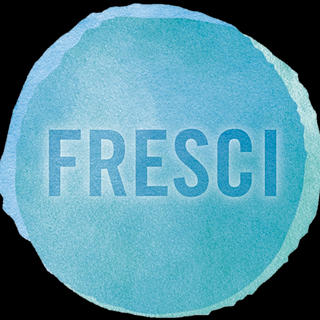Navigating the INVISIBLE BARRIERS of Human Biology-Based Models in Health Research FUTURE Innovation
- FRESCI TEAM
- Nov 21, 2023
- 3 min read
In the ever-evolving field of health research, there lies a complex interplay between technological standardization, market acceptance, and scientific innovation.
As we navigate into the realm of human biology-based models, it's crucial to understand how these factors serve as both catalysts and barriers in advancing our understanding of human health.

The Dual Role of Technology Standardization and Market Acceptance in Health Research.
Technology standardization and market acceptance are often viewed as necessary filters in the health research domain. Standardization, on one hand, guarantees a predefined level of quality. It provides a consistent framework for scientists to work within, ensuring that new technologies meet certain benchmarks of safety and efficacy.
Market acceptance, meanwhile, is a litmus test of a technology's practical utility. It's an economic filter that determines whether a new method or model has the potential to be adopted on a broad scale.
The Limitations of Standardization and Market Acceptance
However, these filters are not infallible. They do not inherently select for the most scientifically relevant or innovative approaches to human health study.
In fact, an over-reliance on standardization can become a barrier to innovation. The danger lies in conflating standardization with the only acceptable path, potentially stifling groundbreaking advancements.
Take, for instance, the use of mice or rats in human disease research. These models have been the standard for years.
Yet, as we embrace stem cell-based approaches, we must be careful not to view these new methods as the final innovation simply because they become standardized.
Pushing for Relevance and Ethical Standards
Our pursuit should be relentless in pushing for models and methods that are relevant to human biology, within ethical and scientific boundaries.
This requires a multifaceted approach:
Awareness, Funding, and Strategic Management: In health research, the role of researchers, encompassing both early-career and senior professionals, is pivotal in recognizing and advocating for human biology-based models. This pursuit transcends mere compliance with regulatory frameworks, aiming instead to revolutionize health systems. To achieve this, not only is adequate funding essential, but also strategic management of these resources by group leaders, principal investigators, and decision-makers is crucial. Effective allocation of funds can accelerate the development and implementation of innovative models, thereby enhancing the overall impact and efficiency of health research.
Institutional Support and Market Dynamics: A nurturing institutional environment is fundamental for fostering scientific breakthroughs. Institutions must provide a robust understanding of the intricate balance between regulatory demands and market dynamics, a role often forgotten by the technology transfer office. This involves creating an atmosphere that encourages experimentation and tolerates calculated risks, thereby enabling researchers to push the boundaries of conventional methods and explore new frontiers in human health studies.
Ethical Considerations, Scalability, and Future Vision: Ethical considerations in intellectual property strategies are not just a compliance issue but a cornerstone for fostering responsible innovation. A well-charted path for scalability and future standardization of new methods is indispensable. Health research must evolve from relying on bespoke, non-replicable solutions to embracing methods that can be scaled and standardized for global application, ensuring both scientific integrity and practical utility.
Sustainability and Adaptability: In the fast-paced world of health research, sustainability is a critical factor. It involves creating a resilient ecosystem capable of adapting to new challenges and scientific advancements. This requires a long-term vision that integrates ethical, scientific, and environmental considerations, ensuring that the research not only addresses current health issues but is also geared towards future societal needs and challenges. By fostering sustainable practices, the field of health research can continue to innovate and make impactful contributions to global health and well-being.
Standardization and market acceptance play significant roles in the field of health research, but they should not become constrictive barriers to innovation or the only way of measuring success in research.
The focus should always remain on developing models and methods that are scientifically relevant and ethically sound.
This is a collective journey, requiring the commitment of scientists, institutions, and regulators alike to push the boundaries of what's possible in human health research.
What are your thoughts on the balance between standardization and innovation in health research? How can we foster an environment that encourages both scientific rigor and groundbreaking discoveries?





Comments